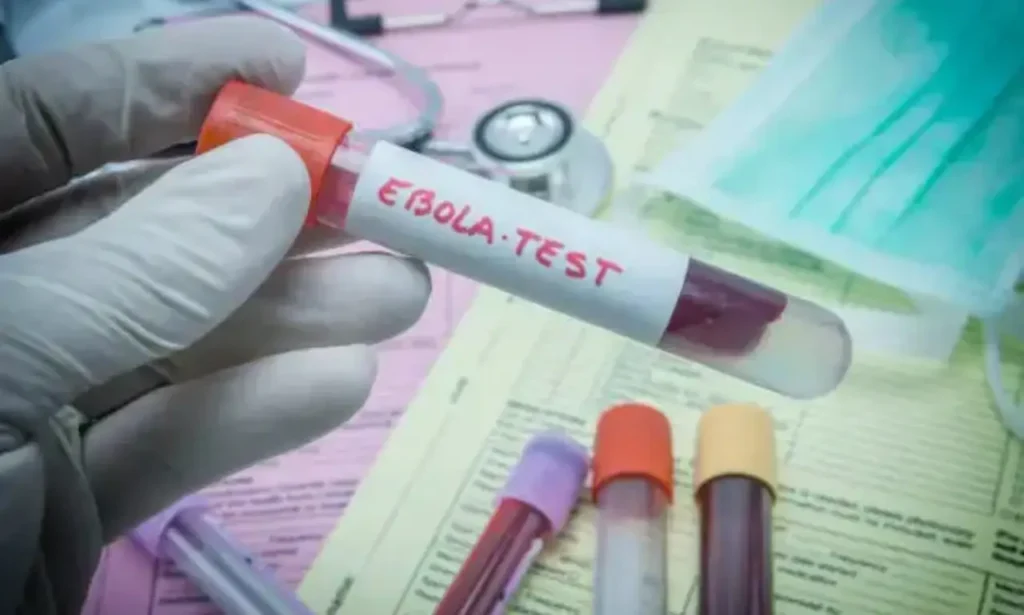How to Understanding MCHC Blood Test Results- Health
The MCHC test measures how much hemoglobin is in average red blood cells relative to volume. Hemoglobin is an iron-rich protein found in red cells that carries oxygen throughout the body, enabling and supporting organ functions. The test is part of the RBC indices panel used in cases of anemia diagnosis and checking up on sicknesses such as sickle cell disease, hyperglycemia, and a host of blood disorders. Low MCHC levels may suggest a deficiency in hemoglobin, which is associated with anemia, whereas elevated levels of several health issues. The results from MCHC are then used to compare the other blood test causes such as iron deficiency, disorders in the blood, or diseases such as cancer.
MCHC Results and What They Mean

Amongst the parameters of red blood cell indices, complete blood count is an integral test that comprises of MCHC blood test, determining the average concentration of hemoglobin in the red blood cells to diagnose disorders of anemia, iron deficiency, and hematological diseases.
Normal Range for MCHC:The reference range for MCHC is 32–36 g/dL. Within this normal hemoglobin levels in red blood cells are confirmed.
MCHC Blood Test Low: Causes, Conditions, and Clinical Significanc
Low MCHC values represent low levels of hemoglobin in RBCs. Iron deficiency anemia (IDA) is a common cause. Iron (Fe) is needed for the production of hemoglobin (Hb), so if iron levels fall short, there will be hypochromic anemia or pale, not oxygenated, RBCs.
Major Causes of Low MCHC
Iron Deficiency Anemia (IDA)
Most often due to a deficiency of dietary iron, chronic blood loss, or malabsorption disorders, such as celiac disease.
Lead Poisoning
Lead toxicity interferes with the enzymes of heme synthesis, which will impede the
production of hemoglobin and produce microcytic, hypochromic anemia.
Thalassemia (Alpha & Beta Thalassemia)
This is a group of genetic hemoglobinopathies affecting the synthesis of globin chains, leading to abnormally shaped RBCs with low hemoglobin content.
Sideroblastic Anemia
A disorder related to pyridoxine (vitamin B6) deficiency that interferes with normal
utilization of iron by RBCs and produces ringed sideroblasts in bone marrow.
Anemia of Chronic Disease (ACD)
These conditions are seen with chronic diseases, including tuberculosis, HIV/AIDS,
rheumatoid arthritis, and chronic kidney disease. There is enough iron, but cytokines, like IL-6, which mediate inflammation, prevent the release of iron to hamper heme synthesis.
Investigation of Low MCHC
To diagnose the underlying cause of low MCHC, these additional tests may be
necessary:
Serum Ferritin (Iron storage marker)
Total Iron Binding Capacity (TIBC)
Hemoglobin Electrophoresis (For diagnosing thalassemia)
Lead Blood Test (if suspected of lead poisoning)
MCHC Blood Test High: Causes and Clinical Significance

High Mean Corpuscular Hemoglobin Concentration (MCHC) indicates that the red blood cells (RBCs) have higher concentrations of hemoglobin (Hb). It is usually linked with hemolytic anemia, in which the RBCs are destroyed more rapidly than they are produced.
Main Causes of High MCHC
- Hemolytic Anemia –Includes Autoimmune Hemolytic Anemia (AIHA) and Cold Agglutinin Disease (CAD), in which the immune system destroys the RBCs.
- Autoimmune Diseases– SLE and Hashimoto’s Thyroiditis will interfere with the RBC’s production and survival
- Liver Disease – In patients with Cirrhosis, alcohol-induced liver disease destroys more RBCs.
- Genetic Disease – The diseases leading to SCD and hereditary Spherocytosis cause a structural abnormality of RBCs, which causes hemolysis.
- Vitamin B12 Deficiency – It leads to macrocytic anemia with abnormal concentration of hemoglobin.
- Lymphoma & Blood Cancers-In NHL may cause an autoimmune hemolytic anemia.
Diagnosis & Testing
- Direct Coombs Test: Autoimmune hemolysis.
- Liver & thyroid function tests- cirrhosis or hypothyroidism
- Hemoglobin electrophoresis sickle cell disease
- Vitamin B 12 & Folates pernicious anemia
MCHC Calculation: Methods and Formulas
It expresses Mean Corpuscular Hemoglobin Concentration, or in grams per deciliter (g/dL). It has two different approaches. These formulas enhance the interpretative sensitivity of hemoglobin concentration in RBCs.
Method 1: Calculation using Hemoglobin and Hematocrit
This method calculates MCHC using two critical complete blood count (CBC) parameters:
● Hemoglobin (Hgb) – Total hemoglobin content in the blood, expressed in g/dL. ● Hematocrit (HCT) – Percentage of blood volume taken up by RBCs. Formula:
(Hgb x 10) ÷ HCT = MCHC g/dL
Method 2: MCH and MCV-Based Calculation
This measures RBC size and hemoglobin mass, employing:
● Mean Corpuscular Hemoglobin (MCH) – Average hemoglobin content per RBC, measured in picograms per cell (pg/cell).
● Mean Corpuscular Volume (MCV) – The average RBC size, reported in femtoliters (fL).
Formula:
MCH ÷ MCV = MCHC g/dL
What to Expect During an MCHC Blood Test

An MCHC blood test is a simple procedure that requires a blood draw taken by your healthcare provider or a phlebotomist within a laboratory. It’s not done as an individual test but as part of the Complete Blood Count (CBC) panel that requires only one test tube of blood.
Although there is no specific preparation for the MCHC test, you may be asked to fast for some hours if other tests are part of the test. Some of these may include the following tests:
- Fasting Plasma Glucose (FPG) – It tests blood sugar levels.
- Liver Function Tests (LFTs) – Evaluating the liver condition by measuring the levels of ALT and AST.
- Iron Studies – To measure serum iron, ferritin, and total iron-binding capacity (TIBC).
- Kidney Function Tests – Including Creatinine (Cr) and Blood Urea Nitrogen (BUN).
Potential Side Effects
- Mild pain, swelling, or hematoma at the puncture site.
- Occasional, temporary dizziness or lightheadedness.
Causes of Inaccurate MCHC Results
The MCHC can be falsely elevated because of blood transfusions, which elevate Hgb and HCT, and plasma transfusions, which dilute RBCs. Combined anemia, such as iron deficiency anemia and sickle cell anemia, will also cause false results. Another cause for an elevated Hgb is hyperlipidemia. Cholesterol in the blood causes it to bind with hemoglobin, elevating the Hgb and thus making the MCHC falsely high.



